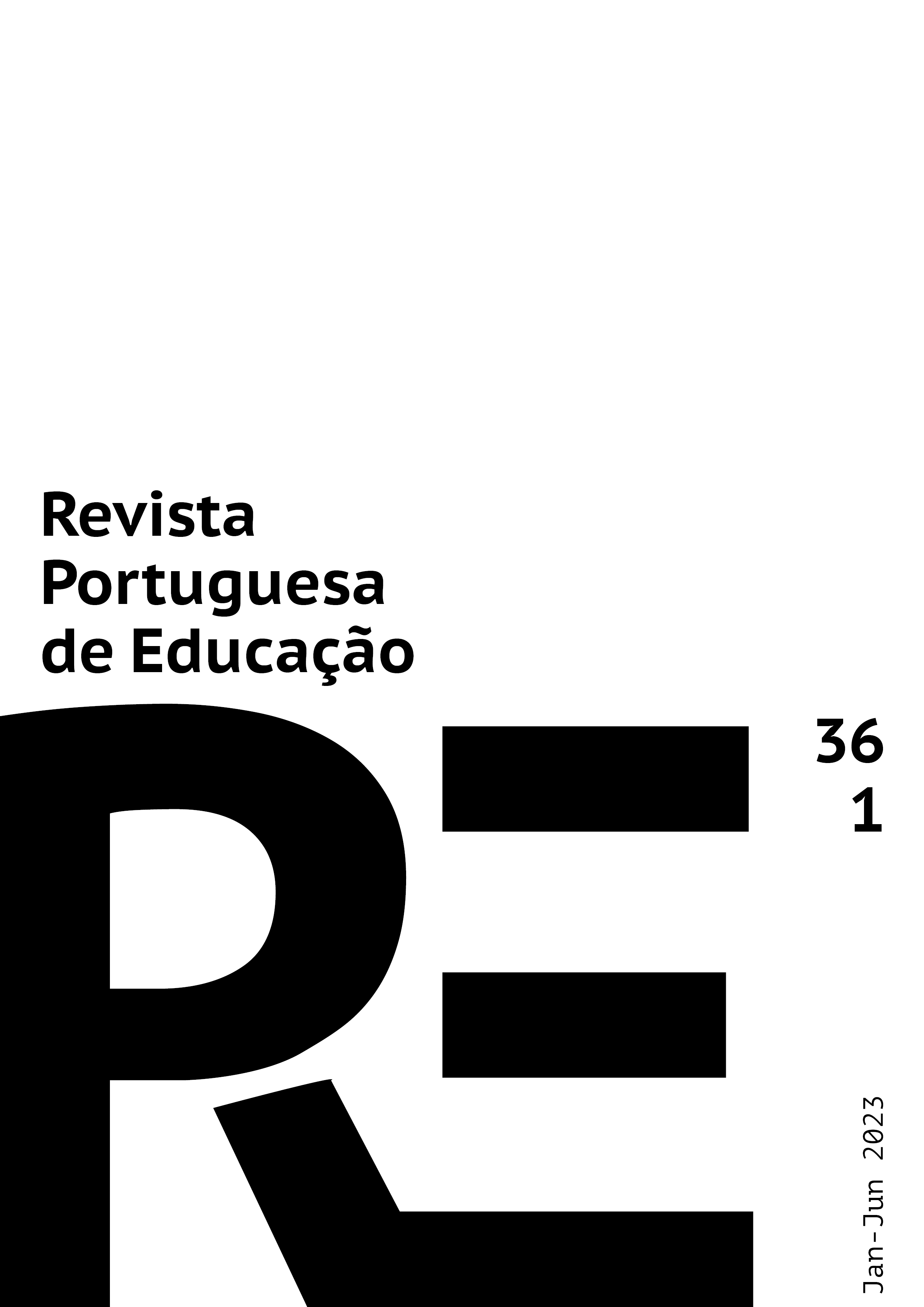A educação a partir da perspectiva de John Stuart Mill
DOI:
https://doi.org/10.21814/rpe.23369Palavras-chave:
Mill, Educação, Cidadãos, Igualdade, DemocraciaResumo
Neste artigo, através de uma revisão bibliográfica, tentar-se-á mostrar alguns aspectos inerentes à posição de John Stuart Mill sobre a educação os quais, ainda hoje, são importantes para a formação dos cidadãos. Do mesmo modo, será caracterizado, de forma geral, o que Mill chamou de “educação liberal”. É esta que promove o desenvolvimento de todas as faculdades do ser humano, não se restringindo ao cultivo do entendimento, mas também contribuindo para a formação da moralidade e da estética. A visão de educação proposta por Mill está voltada para o autocultivo de homens e mulheres de modo a que estes possam usar as suas próprias habilidades. Com benefícios a nível individual e social: liberdade, felicidade, igualdade... Conclui-se que a educação segundo Mill deve promover as diferentes capacidades do ser humano e propiciar o respeito pela esfera privada, não implicando, ainda assim, desconsideração pelos assuntos públicos.
Downloads
Referências
Carrasco, M. A. (1999). La justicia utilitarista y las paradojas del liberalismo de Mill. Anuario Filosófico, 32(2), 395-428. http://dx.doi.org/10.15581/009.32.29578
Copleston, F. (2003). Historia de la Filosofía 8: de Bentham a Russell (Vol. 8). Ariel.
Fuentes Jiménez, J. R. (2010). Educación para la libertad en Stuart Mill. Magister Revista miscelánea de investigación, 23, 139-164. https://reunido.uniovi.es/index.php/MSG/article/view/13777
Gil Ruiz, J. M. (2006). John Stuart Mill y la Violencia de Género: las trampas de la educación diferencial. Anuario de Filosofía del Derecho, (23), 61-84. https://dialnet.unirioja.es/servlet/articulo?codigo=2476035
Guerreo Gutiérrez, E. (1994). Educación para la ciudadanía o la creación de la democracia: lectura de John Stuart Mill. Revista Foro Internacional, 34(3), 457-506. https://forointernacional.colmex.mx/index.php/fi/article/view/1350
Guisán Seijas, E. (2000). Más allá de la democracia. Tecno.
Mendieta, E. (2012). Educación liberadora. In G. H. Vásquez (Ed.), Filosofía de la Educación: Enciclopedia IberoAmericana de Filosofía (Vol. 29, pp. 341-355). Trotta.
Mercado Pacheco, P. (2004). Establecer contratendencias: Progreso, educación, política y selección de las élites en J.S Mill. In M. E. Castillo (Ed.), John Stuart Mill y las fronteras del liberalismo (pp. 163-187). Universidad de Granada.
Mill, J. S. (1966). Consideraciones sobre el gobierno representativo. Herrero Hermanos Sucesores, S.A.
Mill, J. S. (1986). Autobiografía. Alianza.
Mill, J. S. (1994). El Utilitarismo. Altaya.
Mill, J. S. (2000). Sobre la libertad. Alianza.
Mill, J. S. (2004). Contenido y alcance de la educación liberal. Revista de Economía Institucional, 6(11), 209-228. https://revistas.uexternado.edu.co/index.php/ecoins/article/view/162
Mill, J. S. (2005). Contenido y alcance de la educación liberal (Segunda Parte). Revista de Economía Institucional, 7(12), 241-270. https://revistas.uexternado.edu.co/index.php/ecoins/article/view/150
Mill, J. S. (2010). El sometimiento de la mujer. Alianza.
Mill, J. S. (2011). La civilización: señales de los tiempos. Capítulos Sobre el Socialismo (pp. 139-191). Alianza.
Mill, J. S., & Taylor Mill, H. (2001). Ensayo sobre la igualdad sexual. Antonio Machado Libros.
Montoya Sáenz, J. E. (2001). La renovación del Utilitarismo y la idea de libertad en John Stuart Mill. In L. Villacañas Berlanga (Ed.), La filosofía del siglo XIX: Enciclopedia Iberoamericana de Filosofía (Vol. 23, pp. 237-260). Trotta.
Nussbaum Craven, M. (2010). Sin fines de lucro: Por qué la democracia necesita de las humanidades. Katz.
Sánchez Vázquez, A. (1979). Por qué y para qué enseñar filosofía. https://app.box.com/s/s1umv5yv39roa78xx2t1
Savater, F. (2009). El valor de educar. Ariel.
Tasset, J. L. (2009). Sobre la libertad de John Stuart Mill y la disputa sobre el canon liberal (con unas breves consideraciones sobre la educación obligatoria). Télos: Revista Iberoamericana de Estudios Utilitaristas, 16(2), 29-57. https://doi.org/10.15304/t.16.2.960
Urueta, V. (2011). La educación ante los desafíos de la globalización. Revista de Filosofía, (69), 137-155. https://dialnet.unirioja.es/servlet/articulo?codigo=4235882
Urueta, V. (2018). John Stuart Mill y la alienación de la mujer. In H. Martínez Ferro & C. Mora Alonso (Ed.), J. S. Mill: Vigencia y legado de su pensamiento (pp. 43-66). Universidad Libre.
Zuleta, E. (1995). In H. Suárez & A. Valencia (Ed.), Educación y democracia: un campo de combate. Bogotá.
Downloads
Publicado
Como Citar
Edição
Secção
Licença
Direitos de Autor (c) 2023 Revista Portuguesa de Educação

Este trabalho encontra-se publicado com a Licença Internacional Creative Commons Atribuição-CompartilhaIgual 4.0.
1. Autores conservam os direitos de autor e concedem à revista o direito de primeira publicação, com o trabalho simultaneamente licenciado sob a Licença Creative Commons Attribution 4.0 CC-BY-SA que permite a partilha do trabalho com reconhecimento da autoria e publicação inicial nesta revista;
2. Autores e autoras têm autorização para assumir contratos adicionais separadamente para distribuição não-exclusiva da versão do trabalho publicada nesta revista (ex.: depositar em repositório institucional ou como capítulo de livro), com reconhecimento de autoria e publicação inicial nesta revista;
3. Autores e autoras têm permissão e são estimulado/as a publicar e distribuir o seu trabalho online (ex.: em repositórios institucionais ou na sua página pessoal), já que isso pode aumentar o impacto e a citação do trabalho publicado (Veja O Efeito do Acesso Livre).
Esta obra está licenciada sob uma Licença Creative Commons - Atribuição Compartilhamento pela mesma Licença Internacional 4.0




















